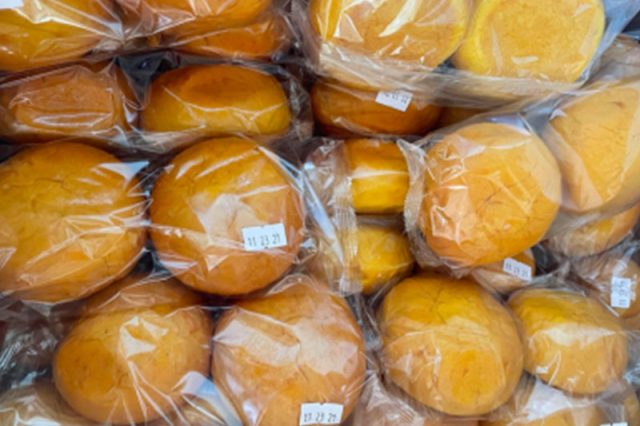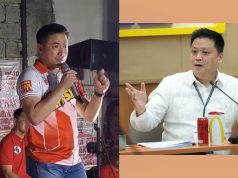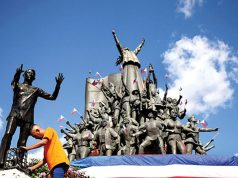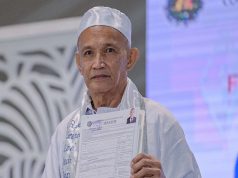
Packs of bread labeled “Nutribun” were reportedly given to Cebuano residents in the town of Consolacion who attended the distribution of the Assistance to Individuals in Crisis Situation (AICS) on Monday.
The AICS program is part of the Department of Social Welfare and Development’s protective services for the poor, marginalized and disadvantaged individuals.
It has been implemented for decades as part of the department’s technical assistance and resource augmentation for local government units and other partners.
The bread was distributed by the office of Sen. Imee Marcos, who went to the town’s distribution event.
Consolacion Mayor Nene Alegado was also at the event to support the activity.
Pictures of the food went viral on social media after a news outlet posted them.
Some social media users appreciated the initiative while others noted the lawmaker’s name on its label.
“Wow… what a delicious food and full of vitamins. Nutribun, isang kagat busog kana…” a Filipino wrote on Facebook.
“Good start, good for senator Imee… Nutribun, malaki ang tulong niyan noon sa mga malnourished… Bilang relief good, ok na rin,” another online user said.
“Kelangan talaga nakalagay pangalan sa plastic,” a different Filipino wrote.
“Name of any politician shouldn’t be posted in any aid or projects by the government, sabi nga ni Vico Sotto, ‘taxes ng taong bayan ginagamit diyan,'” another Facebook user said.
ALSO READ: No epal? Why freebies for Marikina COVID-19 vaccine recipients are gaining traction online
Imee’s office has been seen distributing pieces of bread labeled as “nutribuns” under her name.
She did the same during a food assistance operation in Southern Leyte for victims of Super Typhoon Odette last December.
Bulaceños also received bread during the celebration of Nutrition Month in July 2021.
In 2020, Imee’s Facebook page shared a news article about a conglomerate reviving “nutribun” for Filipinos affected by the COVID-19 pandemic.
The report didn’t mention her name but it said that it was around during the ’70s, when her father, late dictator Ferdinand Marcos Sr, governed the country.
Meanwhile, other Filipinos who saw the nutribuns recently distributed in Cebu recalled the history attached to the name.
“Giving out nutribun is something a Marcos shouldn’t be proud of, it serves to remind us of the thousands of malnourished Filipinos back then. Hence, it’s USAID’s project, not the Marcoses’—just in case they will try to claim everything that isn’t theirs,” a Facebook user commented.
“Nutribun back in the days were US AID to feed hungry Filipinos. They never came from the Marcoses,” another online user said.
“Nutribun na bigay ng America noon, hindi galing sa mga Marcos. May name pa talaga ha! Epal na Imee!” a user from Twitter wrote.
A bit of history
Nutribun was a product of the United States Agency for International Development‘s (USAID) mission in the country during the late 1960s.
It was introduced as a supplement in feeding programs to combat malnutrition among Philippine elementary school students.
USAID formulated it as a “ready-to-eat complete meal” while its Food For Peace program and Cooperation for American Relief Everywhere (CARE) donated ingredients.
But it was local commercial bakeries that produced and delivered the goods to schools.
By 1972, the nutribuns became associated with the Marcoses.
In a memoir, a longtime media advisor of USAID said that at that time, “the nutribun bags were being stamped with the slogan ‘Courtesy of Imelda Marcos — Tulungan project.'”
“Provincial politicians also stamped food packages with their names,” an excerpt of the memoir also read.
The “Tulungan Project” was an initiative of former first lady Imelda Marcos which coincided with the distribution of the nutribuns.
This project was a cooperation between the USAID and the Department of Social Welfare. It was the first major effort to provide nutrition, basic health and family planning services in Manila.









